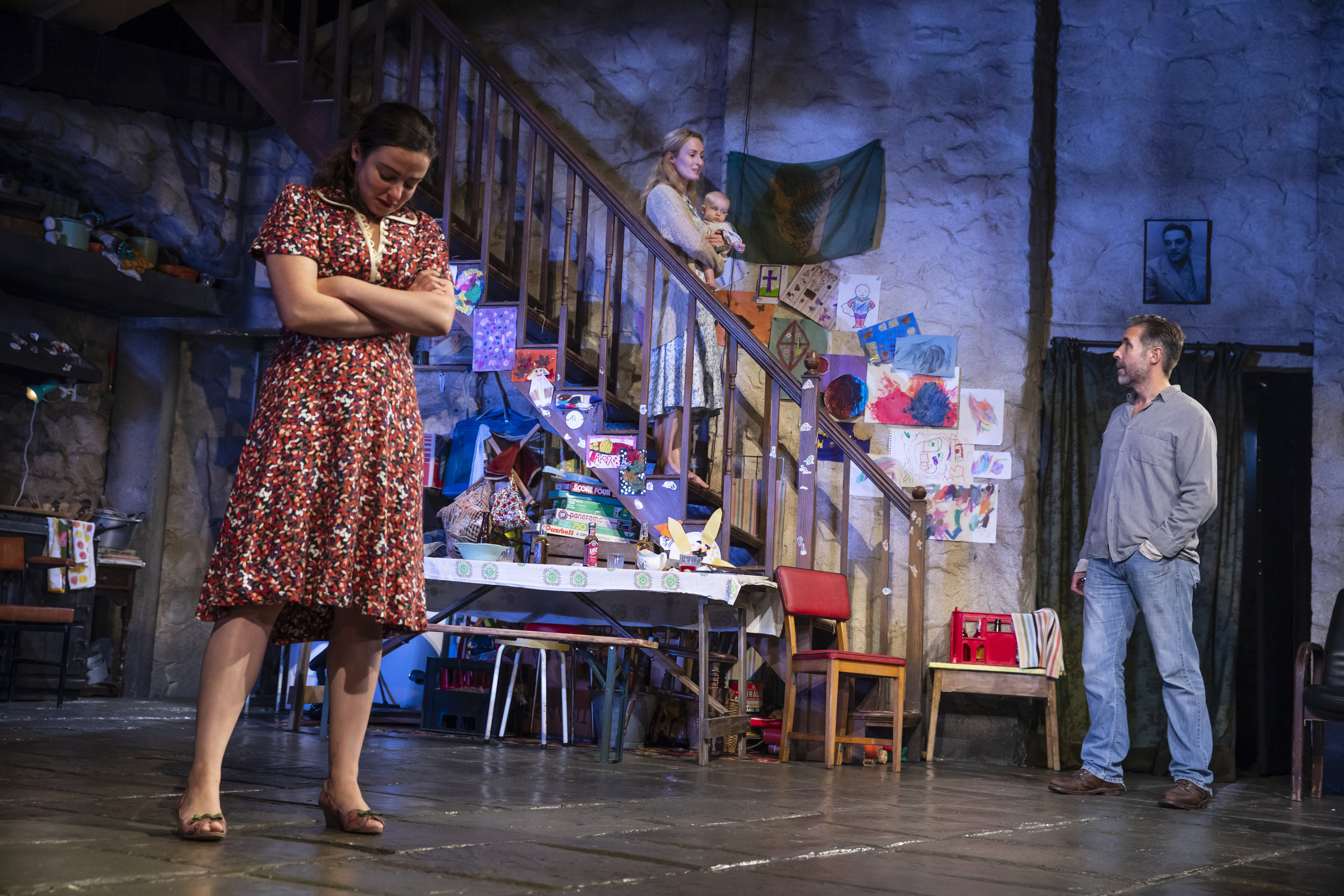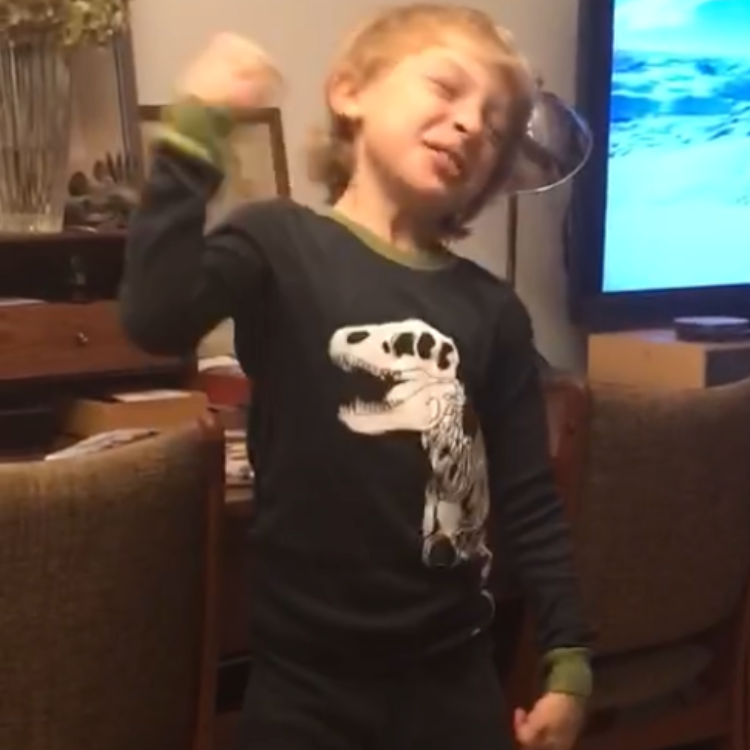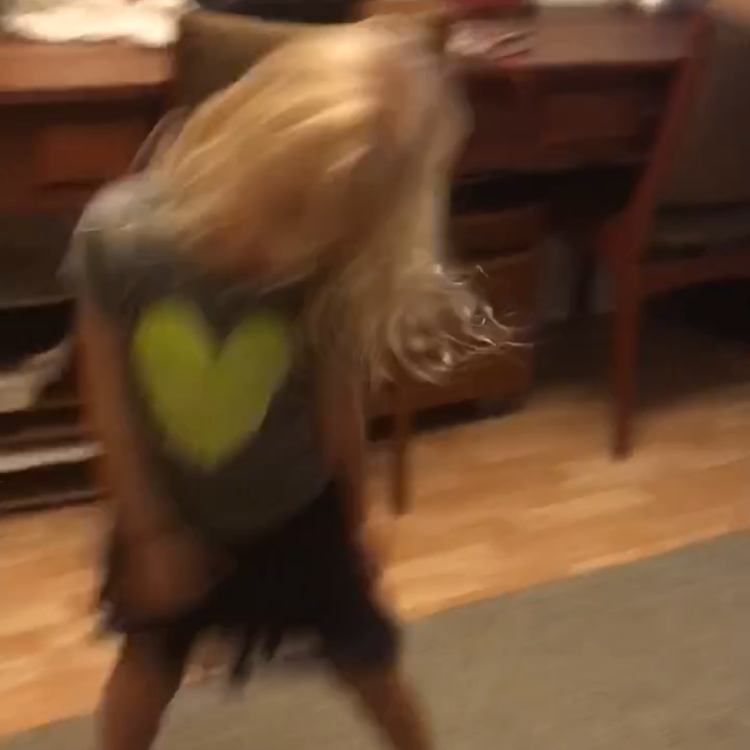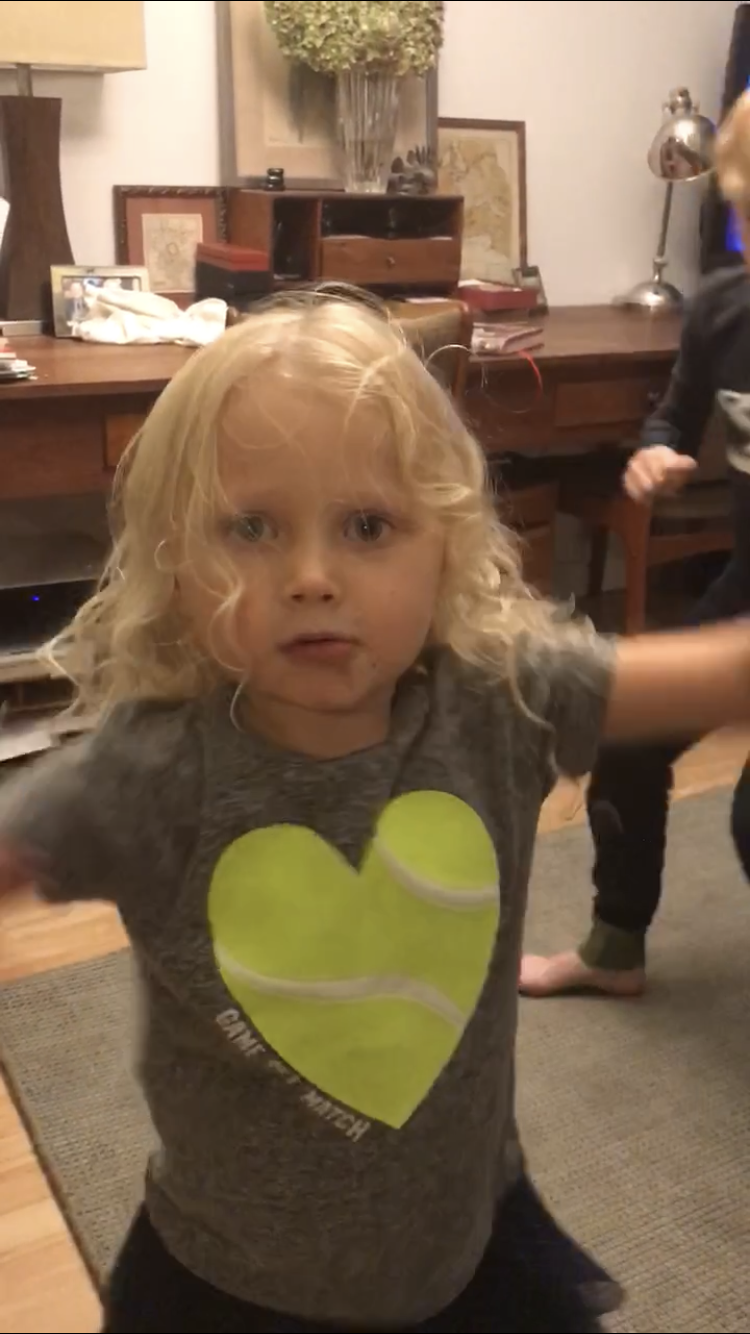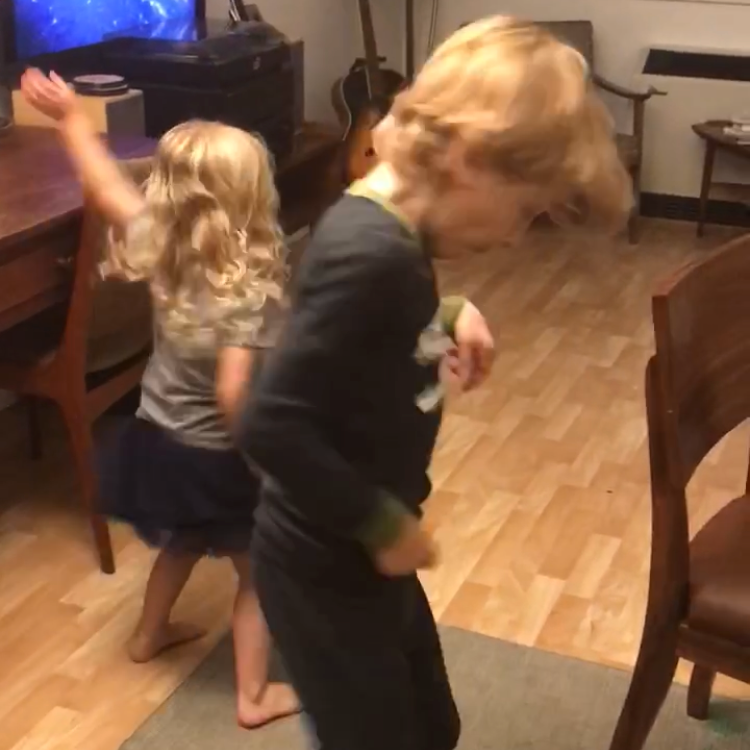HURTS SO GOOD
The family of Quinn Carney (Paddy Considine) surround him at the dinner table on Harvest Day. Photo by Joan Marcus.
Jez Butterworth's latest theatre de force, The Ferryman, is so life-affirming one could forget it's about death. Set in Northern Ireland at the end of the 1981 hunger strike, its action unfolds midway through The Troubles, the brutal conflict over Irish independence that raged from 1968 until 1998's Good Friday Agreement.
Familiar with the playwright from 2011’s English epic Jerusalem, I was surprised to see the curtain rise on a scene as Irish as Kerrygold. Butterworth knew he was in unique territory when he decided to write a story inspired by the family of his real-life partner, Laura Donnelly, who stars (and shines) in the play. For an October 14 profile in the New York Times, he told Laura Collins-Hughes, "I really didn't want to write a play set in Northern Ireland...Because I'm English, and for no other reason. It's just not the smartest thing to do."
Members of the I.R.A. confront an unlucky preacher who finds himself caught in the Carney drama. Left to right, Lawrence Malone (Glenn Speers), Father Horrigan (Charles Dale), Frank Magennis (Dean Ashton), and Muldoon (Stuart Graham). Photo by Joan Marcus.
Directed by Sam Mendes, The Ferryman was a smash hit in London, garnering three Oliviers, and I expected no less in New York. Billed as a thriller, its mystery surrounds the discovery of Seamus Carney's body, a young man whose disappearance ten years prior left his wife Caitlin (Donnelly) and son Oisin (Rob Malone) penniless; she is still paying off their wedding ring when the play begins. The short-term plan for Caitlin to move in with her brother-in-law Quinn Carney (Paddy Considine) has turned into an Homeric wait fraught with uncertainty over whether her love is missing or dead. She's become kindred with Quinn, whose over-tired wife, local beauty Mary Carney (Genevieve O'Reilly), has given him seven children in sixteen years. Mary has abandoned homemaking and vibrant Caitlin is picking up the slack, or perhaps it's the other way around.
The Auld Triangle. Mary (Genevieve O'Reilly) and newest child, nine-month-old Bobby, implore Quinn (Paddy Considine) to call it a night while Caitlin (Laura Donnelly) waits. Photo by Joan Marcus.
Inside Quinn's populous family, which inhabits a farmhouse on 50 acres in rural County Armagh, we find every archetype under the sun. The octogenarian Thatcher-hating Aunt Patricia (a rip-roaring Dearbhla Molloy) lives on anger, news, and cigarettes, never missing a chance to sabotage her brother's endless storytelling. Mark Lambert plays this brother, Uncle Patrick, a classics-quoting boozer—“More and more I find myself, up in the wee hours, sharing a drop of Bushmills with the Ancients"—who narrates past and daily dramas with equal relish. These performances alone would be worth the trip to Broadway's Jacobs Theatre.
Patrick and Patricia have another sister under Quinn's roof, “Aunt Maggie Far Away” as the children call her. Long-lost to dementia, Maggie (Fionnula Flanagan) is prone to come back with a bang. When we meet her, she sits forward in the wheelchair to tell four great-nieces her remarkable story of unrequited love, peppered with age-inappropriate flourishes ("I swear to Christ I could have ridden that boy from here to Connemara. And back.") that nearly bring down the house.
When “Aunt Maggie Far Away” (Fionnula Flanagan) comes back, her nieces pull up a chair. On floor, Matilda Lawler as Honor Carney (7). In chair, Brooklyn Shuck as Nunu Carney (11). Photo by Joan Marcus.
With three feisty little girls to keep things light, the Carneys are by most accounts a happy family; they like each other. The discovery of Seamus's body interrupts their peace, rousing visits from an I.R.A. intent on strong-arming the Carneys' silence. It confirms Caitlin's widow status, making the tension between her and Quinn harder to ignore. It signals the end of innocence for the Carney teenagers and their friends, the Corcorans, who come to help each harvest. Caught between childhood and responsibility, pressure to serve the cause has begun to infiltrate youth's carefree bubble. From scenes that swing between the highest spirits and the worst of news, Butterworth's thesis takes shape: the political won't let the personal be. Eventually tipping the scales, politics and “children ardent for some desperate glory,” to quote Wilfred Owen, drive the play's tragic ending.
The joy of The Ferryman lies in the beauty of its minor family dramas: harvest day and a missing goose to kill, the burning need to storytell that keeps Uncle Pat's tongue wagging and brings Aunt Maggie back to Earth. Throughout the play I was struck by the thought that the only reason humans do anything is to have a story—or glory—to share. We feed off struggle because without it you not only miss a complete human experience, you don’t have any good material. This may be small comfort in the face of real heartbreak, but it's better than gabber’s block.
At a time it's rare that conversation doesn't turn to politics, I recall the face my (incredibly informed and opinionated) grandmother used to make when one of us "went there." Bush, Clinton, affirmative action, political correctness, "don't ask, don't tell," whatever the Nineties topic, it was never a good time to tarnish our family's joy or calm with disagreements over the world’s problems. When living in France, I got on the bandwagon of deploring American apathy compared with French activism—what's a real day without a protest or strike? Later in graduate school, studying de Tocqueville, I had a professor who pointed out that political detachment may indicate a healthy culture, one in which we are able to focus on building our own lives. In lieu of either extreme, I have often imagined passionate, articulate debates from which everyone walks away more informed and no one hurt, but have rarely experienced one. In our culture of headline fatigue, I like poet Rachel Hadas’s great-books approach. Uncle Patrick would agree.
If a play is a closed flower, music throws it open. The ever-sweet surprise of drama breaking into song has provided this audience member’s all-time highs. In The Ferryman Choreographer Scarlett Mackmin and Sound Designer/Composer Nick Powell gave us one dance break for the ages. Just as the Carneys and friends dig into their harvest feast, the oldest Carney kid turns up his tape, erupting a traditional Irish cèidlidh of the most impossibly charming kind. Young firebrand Shane Corcoran (a memorable Tom Glynn-Carney) switches the music, transforming the “Riverdance” into manic Eighties pogoing. Foreshadowing his later declaration to indifferent-seeming friends, “This is not history, this is happening now,” the times change, through dance, before our eyes.
(Michael is up. He has a tape on the tape deck. He turns it up.)
MARY: Michael, turn that off. We’re eating.
MICHAEL: Now Ma. You know as well as me, there’s no eating at a Carney Feast.
Photo by Joan Marcus.
Here now, days after seeing The Ferryman, it's these images—the little girls Celtic stepdancing, Drunkle Pat showing he's still got it, Caitlin pouring all her pent-up sensuality and sorrow into a rocking headbang—that remind me of everything I want to feel about life. Art as the ultimate Good News.
Among my own family's best moments are when we go Alexa-crazy at a wholly inappropriate hour, like bedtime on a Monday. The kids get her going or maybe my husband and I can't resist sharing a song that's come to mind. The sight of our wee'uns interpretive dancing to Elvis, Queen, Aretha, MJ, royalty from another time, is manna enough to counter the headaches and headlines for another day. Northern Ireland 1981, New York 2018. If you can dance, with your family, life just might stay beautiful.
The Ferryman runs through Feb. 17, 2019 at the Bernard B. Jacobs Theater, 242 W. 45th St., NYC. Runtime: 3 hrs. and 15 min. Search tickets here.



